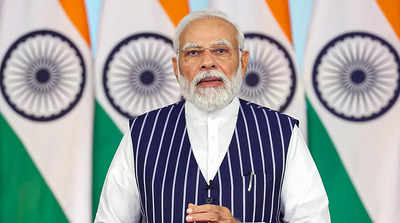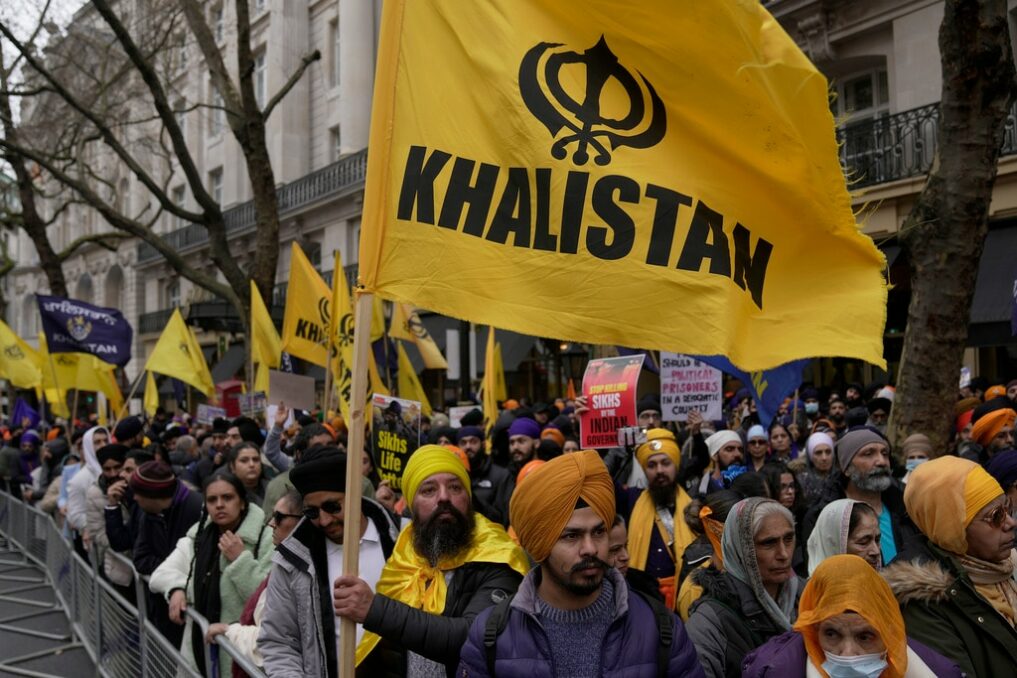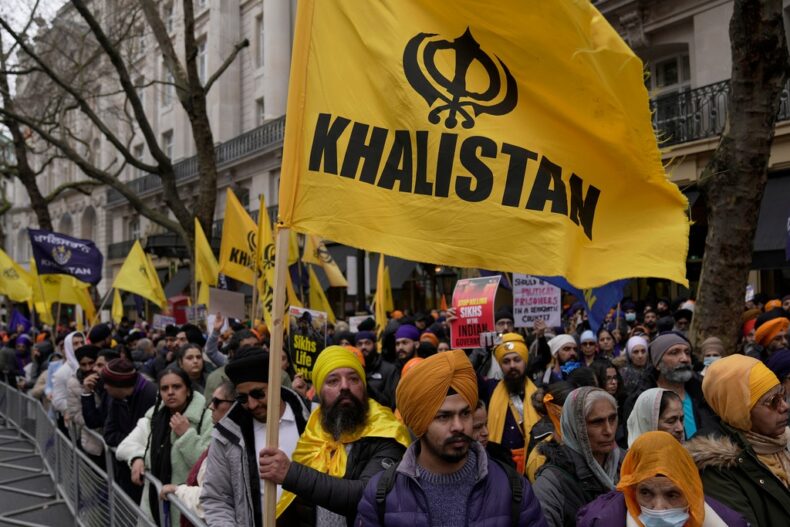The release of a poster titled “Kill India” by Pro-Khalistani leaders in Canada has ignited widespread outrage among the Punjabi diaspora settled in the country. The poster accuses Indian High Commissioner Sanjay Kumar Verma and Consul General of India in Toronto, Apoorva Srivastava, of assassinating Khalistani leader Hardeep Singh Nijjar. While no official statement has been released by the Indian Government regarding this development, the poster serves as an invitation to a rally called the “Khalistan Freedom Rally,” scheduled for July 8.

Accusations and Rally Details
The poster prominently displays photos of the accused Indian officials and labels them as the killers of Hardeep Singh Nijjar in Toronto. It also mentions the involvement of Sikh for Justice, an organization associated with the Khalistani movement. The rally is set to commence from the Great Punjab Business Centre Malton and culminate at the Indian Embassy in Toronto (note: Toronto houses the Consulate General of India, not the Indian Embassy).
Background on Hardeep Singh Nijjar’s Assassination
Hardeep Singh Nijjar, the former head of the Khalistan Tiger Force, was killed in the parking lot of a Gurudwara in Surrey, British Columbia, on June 18. The Chief of Sikh for Justice, Gurpatwant Pannu, appertained to the incident as a” murder.”

Indian Government’s Response
While the Indian Government has not issued an official statement on the matter, a senior officer from the External Affairs Department stated that the ministry is aware of the situation. However, only an authorized person can make a statement on behalf of the government. The officer emphasized that this is a matter between the two governments, and Canada must handle it properly.
Efforts have been made to reach out to the spokesperson at the Ministry of External Affairs for a response, but no reply has been received thus far.
Concerns from Journalists and Activists
Terry Milewski, a veteran journalist, and author, expressed his concern about the poster on Twitter. He described it as extremely dangerous and highlighted that Khalistanis are whipping up anger towards Indian diplomats, whom they accuse of being killers. Milewski emphasized that there is zero evidence of any Indian role in the assassination and deemed the poster’s claims grossly irresponsible.
Another journalist, Balraj Deol, who is based in Toronto, responded to an activist’s tweet by stating that Canada is the base camp for Khalistanis. He expressed his belief that the Government of Canada and the establishment are not inclined to take action.

Canadian NRIs Express Concerns
A Canada-based NRI, who also runs a large business in Toronto, voiced his concerns regarding the frequent incidents occurring in Canada. He emphasized that the Canadian government must put an end to such activities as they threaten the peace of the country. He added that people come to Canada for a better future, and such activities tarnish the image of this peaceful nation.
Another Toronto-based NRI, who preferred not to be quoted, highlighted the importance of solving the mystery surrounding the murder of the pro-Khalistani leader. They stressed that baseless accusations against Indian officials are a major insult to the diplomatic relations between both countries, which have otherwise been cordial. The NRI emphasized that most Sikh NRIs are peace-loving individuals facing threats to their peace and questioned how Indian officials can be accused without any evidence.
Conclusion
The release of the “Kill India” poster by Pro-Khalistani leaders in Canada has sparked outrage among the Punjabi diaspora settled in the country. Accusing Indian officials of assassinating Hardeep Singh Nijjar, the poster serves as an invitation to the Khalistan Freedom Rally scheduled for July 8. While the Indian Government has not issued an official statement, concerns have been raised by journalists, activists, and Canadian NRIs. It remains to be seen how the Canadian government will handle these accusations and ensure the preservation of peace and diplomatic relations between the two countries.













